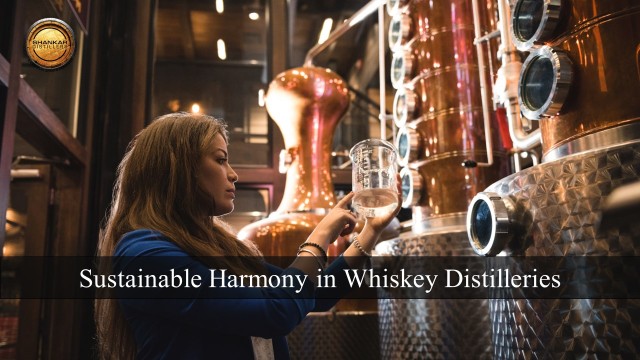Sustainable Practices In Whiskey Distilleries: Balancing Tradition And Environmental Responsibility
- - Category: Wines & Spirits
- - 27 Feb, 2024
- - Views: 43
- Save
Sip on the essence of whiskey's evolution, where each drop reflects a commitment to a greener future.

In the world of whiskey distilleries, a delicate dance between tradition and environmental responsibility is taking center stage. As whiskey enthusiasts, we appreciate not only the rich flavors and craftsmanship that go into creating our favorite spirits but also the commitment of distilleries to sustainable practices. In this blog, we will explore how whiskey distillers, particularly in the USA, are embracing eco-friendly initiatives without compromising the age-old traditions that make each sip memorable.
The Green Revolution in Whiskey Distilleries:
Whiskey distillers across the globe are recognizing the importance of sustainable practices to reduce their environmental footprint. From sourcing raw materials to production and packaging, every step is being scrutinized to align with eco-friendly standards. In the USA, where the whiskey industry has seen exponential growth, distilleries are at the forefront of adopting green technologies.
Sourcing Locally and Responsibly:
One key sustainable practice is the emphasis on sourcing ingredients locally and responsibly. Whiskey distillers in the USA are increasingly collaborating with local farmers to obtain high-quality grains, contributing to regional economies and reducing the carbon footprint associated with transportation. This shift towards sustainable sourcing not only supports local communities but also ensures the authenticity of the whiskey's terroir.
Energy Efficiency and Innovation:
Whiskey production traditionally involves energy-intensive processes, but distilleries are actively seeking ways to reduce their energy consumption. From investing in energy-efficient distillation methods to utilizing renewable energy sources, such as solar and wind power, distillers are pioneering innovative approaches to minimize their environmental impact. These initiatives not only benefit the planet but also contribute to long-term cost savings.
Water Conservation Measures:
Water is a precious resource, and whiskey distillers are implementing water conservation measures to preserve this essential element. Through recycling, reusing water in various stages of production, and investing in wastewater treatment technologies, distilleries are making strides in reducing water usage. This commitment to sustainability ensures that the whiskey-making process remains in harmony with nature.
Packaging Innovations:
The sustainability journey extends beyond the distillation process to the final product on the shelf. Whiskey distillers are exploring eco-friendly packaging options, such as recycled materials and biodegradable designs, to minimize the environmental impact of their products. This not only appeals to environmentally conscious consumers but also reflects a commitment to responsible business practices.
Conclusion:
In the dynamic landscape of whiskey distilleries, the embrace of sustainable practices is not just a trend but a conscious effort to secure the future of the industry. Distillers in the USA and around the world are proving that it's possible to balance tradition and environmental responsibility, creating a legacy that goes beyond the exquisite flavors within the bottle. As we raise a glass to our favorite whiskey brands, let's also toast to the commitment of distillers to a greener, more sustainable future. Cheers to whiskey, responsibly crafted for generations to come.
Useful Links
